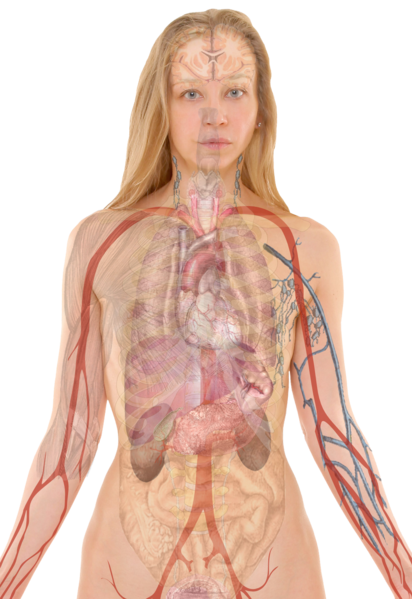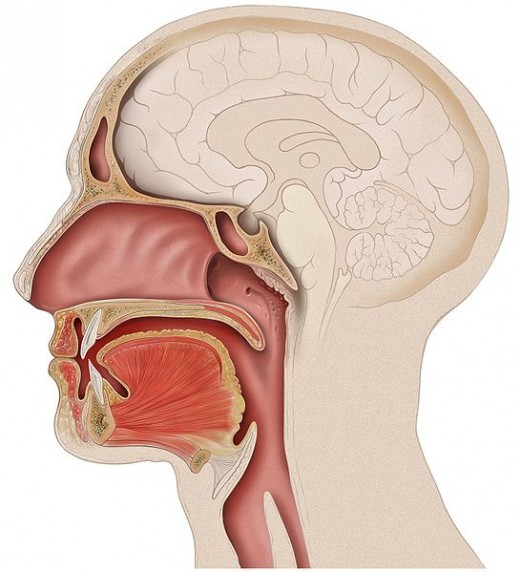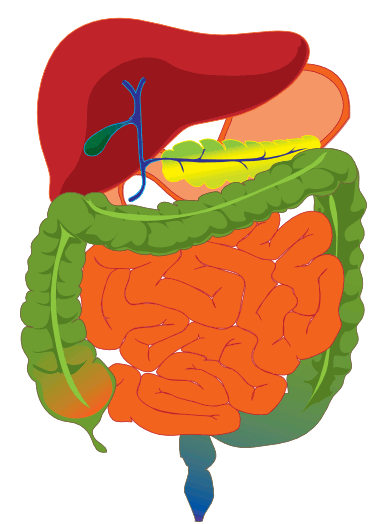What happens to medications once they are in our bodies? Where do they go? How do they get there? What functions do they carry out?
Millions of pills, syrups, and potions are ingested in some form or another by humans on a daily basis. It may then be beneficial to us all to know exactly what happens inside our bodies when we have taken some form of medication.


What medicines do for us
Medicines work in a variety of ways depending on what they are taken for and in what form.
Some examples of why we take medication are:
- pain relief
- to fight infection
- to fight disease
- to supplement a deficiency
- to assist a body mechanism to correct itself
- to decrease an overabundance of a body substance
- to balance systems and organs in the body
But in addition to what we take, there is also the route and form by which a medication is taken:
- Oral – tablet, capsule, syrup, drops etc.
- Sub-lingual, (under the tongue) – tablet, drops.
- Skin preparation – cream, ointments, gel, patches and so on.
- Injection – by hypodermic needle.
- IV – Intravenous – needle into a vein.
- Into the bowel – suppository/enema.
- Inhalation – steam inhalation, crystals, and inhaler.
- Drops – ear/eye/nose.
How medicines are processed by the body is an intricate process, but we can simplify this by breaking the steps down into four main areas:
- Administration – we take in the medicine by the form and route as mentioned earlier.
- Delivery – once the medicines are inside our body they move into the blood stream then into organs and tissues.
- Performance – medicines will produce or induce effects.
- Elimination – the body will wash out medicines and waste products associated with them.
Therefore the type and route will have an effect on where the drug will enter the body and what areas the drug may target. For example, inhalations are primarily to assist with breathing.
The route and type of medication also has an effect on how quickly a drug will act. Intravenous (IV) is a rapid method of medication administration, since the chemicals enter directly into the blood stream.
Injection into muscles—which are full of blood vessels—is also a very fast method of medicines getting into the body.
Suppositories and enemas inserted into the bowel through the anal opening can also be swift acting. This is due to the large surface area of the bowel that is packed with blood vessels, so absorbing the drugs very quickly.
These last 3 routes also bypass the stomach where some or the entire drug could be destroyed or diluted by the hydrochloric acid.
The most common route for medications
The most common route for taking medication is by mouth – also known as the ‘oral’ route. From here the medication has a journey to make that starts from our mouths to the target area inside the body.
Medicines in the digestive system
When medicines reach the stomach, some will start to dissolve. A few medicines will be absorbed into the stomach lining, whereas others will move onto the small intestine. It depends on the type of coating a tablet has whether it dissolves in the stomach or elsewhere.
Many drugs have special coats that protect the medicine inside from being destroyed by the stomach acid. Tablets in capsule form also often have this kind of protection. This is why it’s important not to open capsules or coated tablets and swallow the medicine inside.
In addition, some medicines inside coated ones might be harmful to the lining of the stomach. This happens because some medications induce the stomach to produce higher levels of hydrochloric acid in the stomach that can be harmful.
Medications that haven’t been processed fully by the stomach move into the small intestine.
Medications are absorbed into the lining of the small intestine which is made up of three parts:
- The duodenum
- The Jejunum
- The Ileum
From the small intestine medications will move into the blood stream.
Medicines in the circulatory system
No matter what form a medicine takes they will be dissolved and enter the blood stream at some point.
Medicines are circulated around the body and delivered to organs and tissues. This process is very fast. The heart can pump a full cycle of blood in about one minute. During this process the medicine molecules are being delivered throughout the body. The brain will receive the largest portion: about 16%.
The effects of the medicine will continue to be active until metabolism begins. (Metabolism is the biochemical activity of a substance within a living organism.)
The metabolism for each medicine is different. In other words some are broken down and prepared for elimination more quickly than others.
That is why some medicines will be given frequently, for example 2-4 hourly, others less so. In fact some medicines may already be breaking down when they passed through the liver for the first time; this is called “first-pass effect.”
Some categories of tablets and capsules may have to go through the liver several times before they can be eliminated from the body.
Medicines within the body tissues and cells
Within the body tissues we eventually get down to the cellular level.
The cells of the body can absorb fluids and so will soak up the molecules of medicine from the blood that surrounds them.
Not all medicines will start to work at the same time. This is because different medicines all have their own specific molecules that will dissolve either quite quickly or more slowly than others.
In addition some medicines find it easier to dissolve in human tissue than others.
Human cell membranes have a high content of fats. Therefore, if you have a medicine that can dissolve in fat then they will begin to work more quickly than those that can’t.
This ability to dissolve in fat is a very important point when thinking about how fast a drug will begin to act.
Once the dissolved medications are within the cell this is where most of them do their work through biochemical reactions. They then re-enter the blood stream where they will once again enter the liver. Here they will be broken down further and prepared to be eliminated by the body.
Eliminating medicines from the body
The main organs associated with elimination of medicines are the liver and kidneys.
Basically these organs sieve out toxic substances. The liver breaks them down through a series of complex metabolic reactions. These toxins/waste products are then stored by the liver until it is ready to send them to the kidneys.
In the kidneys the prepared substances are further processed and then eliminated from the body through the urine.

Medications and the Brain
As mentioned earlier, medicines enter the blood stream once they have been dissolved and travel throughout the body to various organs including the brain.
Once in the brain some medications can affect chemicals called neurotransmitters.
The neurotransmitters are special elements responsible for controlling the signals sent between brain cells. These brain cells are called neurones.
Specialised neurotransmitters are also responsible for affecting people’s feelings and moods.
However, it’s not always possible for medicines to get access to the brain. This is because the brain has a safety device called the blood-brain barrier, orBBB for short.
This in effect helps to prevent things such as bacteria, toxins and unwanted molecules from entering the fluid that directly surrounds the brain.
However, what this does mean is, if infection infiltrates the defences then medications such as anti-biotics, whose molecules are large, cannot cross the BBB to fight the bacteria.
Having said this, with infection, inflammation develops and this is one symptom that will weaken the barrier and may allow anti-biotics to filter through.
Other medications that are required to access the brain directly need to have specialised fat-soluble properties in order to get through the BBB’s defences.
In some areas of the brain the BBB is deliberately weak. This allows the brain to monitor the composition of the blood and to take action if adjustments are needed.
There are conditions and diseases that can weaken the BBB to a dangerous level allowing other harmful substances to pass through. Some of these conditions are:
- Hypertension
- Very high exposure to microwaves and radiation
- Infections
- Head trauma
- Ischaemia
- Inflammation
- Abnormal Pressure around the brain.
- Meningitis
- Epilepsy
- Multiple Sclerosis
- Alzheimer’s disease
- HIV Encephalitis
- Viruses
Taking Medications
Factors that affect the medications you take
There are quite a number of factors that will influence both the absorption rate and the metabolism of medicines:
- Physical
- Food
- Other medications/chemicals
These factors will in turn decide how effective the medication is.
Physical Factors
These include:
- Your weight
- Age
- Fat mass
- Muscle mass
All these aspects either speed up medicine absorption or slow it down.
If you have a good amount of fat mass for example, then it will have an affect on how long it takes to target the specific area and how effective the medicine will be when it gets there.
In relation to age – younger people tend to be able to metabolise and eliminate medications quicker and more thoroughly than older people. Therefore doctors will often moderate the dosage of tablets for an elderly person.
Babies and young children have to have a moderated dosage as well since their bodies are still maturing. This means their organs could be more easily damaged by the toxic affects of medicines.
In addition, we are all genetically and chemically different. Some of us may tolerate a particular medicine more than others. This is why some people may suffer from either the *side effects or **adverse reaction of a medicine.
- *Side effect: “An undesirable secondary effect of a drug.” – Encarta Dictionary
- ** Adverse reaction: “…undesirable or harmful results from a medication…” – Encarta Dictionary
If you experience any problems with medicines you should consult your doctor or pharmacist immediately.
Food
Food will slow down the absorption rate of medication. This can either be beneficial or detrimental to the medication’s success rate.
That is why it is always important to follow the instructions given either by a doctor, pharmacist or on the leaflet that comes with the medication.
As an example, instructions may include:
- To be taken before food
- To be taken either with or after food
- To be taken after food
- To be taken with a full glass of water
These instructions are given so that the medications will work at their most effective. In addition, these instructions may also be to lessen the harmful effects that some tablets may have on the body.
Other Medications
These can also have numerous affects on medications. For example, if some medications are taken at the same time, they could cancel out the benefits of each other.
Some medications will increase or decrease the rate of absorption and metabolism in the body. So again, that is why it is important to follow the instructions given to you or that are stated on instruction leaflets.
For example you may see an instruction such as:
- Not to be taken with alcohol
- Do not operate machinery, or drive while taking this medication
I hope this article has been helpful to you in explaining how medications work in the body and the factors that can affect how they work.
If you are ever unsure about any medications that you have – whether prescribed or bought – then speak to a doctor or pharmacist as soon as you can.

